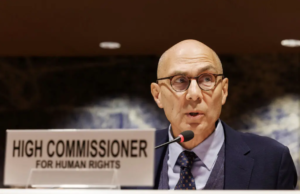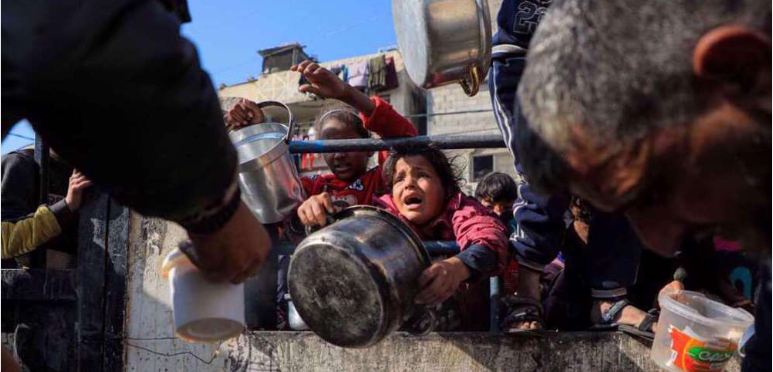Gaza, a densely populated enclave, has been grappling with humanitarian crises exacerbated by decades of conflict, blockade, and military operations. The Palestinian population in Gaza faces severe shortages of food, water, and medical supplies, with infrastructure in ruins and basic services in disarray. The situation has been further compounded by Israel’s extensive restrictions on the entry and distribution of humanitarian aid and commercial goods, leading to widespread deprivation and suffering among civilians.
United Nations human rights chief Volker Turk’s denunciation of Israel’s policies in Gaza has brought international attention to the issue of starvation as a method of war. According to Mr. Turk, Israel’s restrictions on aid into Gaza, coupled with its military offensive, may amount to the use of starvation as a weapon of war, constituting a war crime under international law. The displacement of the population and the destruction of civilian infrastructure have further exacerbated the humanitarian crisis, leaving Gaza on the brink of famine. 
for more info:
Israel has vehemently denied the accusations leveled against it by the United Nations, dismissing them as baseless and politically motivated. Israeli officials have argued that the restrictions on aid into Gaza are necessary for security reasons, citing concerns about the smuggling of weapons and materials used for terrorist activities. They have also accused Hamas, the militant group governing Gaza, of exacerbating the humanitarian crisis by diverting aid for its own purposes and perpetuating violence against Israeli civilians.
The United Nations’ accusations against Israel have elicited mixed reactions from the international community, with some countries expressing support for the Palestinian cause and calling for an end to the blockade of Gaza. Human rights organizations have condemned Israel’s policies as violations of international law and humanitarian principles, urging the international community to take concrete steps to address the crisis. Calls for accountability and justice have grown louder, with demands for independent investigations into allegations of war crimes and violations of human rights.
As the humanitarian crisis in Gaza continues to escalate, urgent action is needed to alleviate the suffering of the Palestinian population and prevent further loss of life. The international community must exert pressure on Israel to lift its restrictions on aid into Gaza and allow unimpeded access for humanitarian organizations. Diplomatic efforts should be intensified to reach a lasting ceasefire agreement and facilitate the reconstruction of Gaza’s infrastructure. Additionally, efforts should be made to address the root causes of the conflict and advance a comprehensive peace process that addresses the legitimate grievances of both Palestinians and Israelis.
The use of starvation as a weapon of war in Gaza represents a grave violation of human rights and humanitarian principles. The accusations leveled against Israel by the United Nations underscore the urgent need for action to address the humanitarian crisis unfolding in the region. As the international community grapples with the complexities of the Israeli-Palestinian conflict, it must prioritize the protection of civilian lives and uphold the principles of justice, accountability, and respect for human dignity. Only through concerted efforts and collective action can the suffering of the Palestinian population in Gaza be alleviated and a just and lasting peace be achieved in the region. latest update







